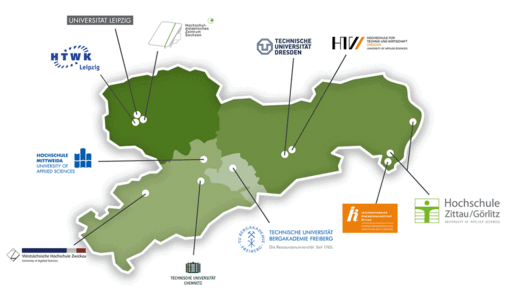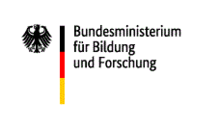
Das BMBF-Verbundprojekt "Lehrpraxis im Transfer plus" (LiT plus) versteht sich als ein hochschuldidaktisches Netzwerk von Universitäten und Hochschulen für Angewandte Wissenschaften in Sachsen. Im Zentrum des Projektes stehen Maßnahmen zur Qualitätsverbesserung in der Lehre in den Geistes- und Sozialwissenschaften und in den MINT-Fächern sowie eine engere Verknüpfung von Hochschul- und Mediendidaktik. LiT plus unterstützt hochschulinterne wie -übergreifende Qualifizierungsangebote und hochschulübergreifende Kooperationsmaßnahmen.
Folgende vier Wissenschaftsregionen arbeiten im Verbund zusammen:

An der Hochschule Zittau/Görlitz ist LiT plus am Karriereservice der HSZG angegliedert. Die zentrale Projektkoordination erfolgt durch Geschäftsstelle des Hochschuldidaktischen Zentrums Sachen (HDS) mit Sitz in Leipzig.
All lecturers at the HSCG receive free, individual advice for their teaching units if required and interested. By means of teaching observations, workshops, collegial advice, etc., needs-based solutions for the design of teaching processes are found in a joint exchange and discussion in order to implement them sustainably in one's own teaching. In addition to individuals, entire institutes or departments are also welcome to take advantage of these offers on subject and media pedagogical challenges in university teaching.
Inter-university cooperation between universities and universities of applied sciences is one of the cornerstones of quality. Within the LiT. funding program, LiT plus provided support in terms of content and didactics and supported the transfer of higher education didactic experience, knowledge and skills with financial resources. Cooperative classes / courses and teaching development measures in degree programs were funded over a period of two semesters and good teaching in Saxony was made visible.
LiT. funding projects at the Zittau/Görlitz University of Applied Sciences:
thermoACTIVE
Didactic concept for actively ensuring understanding and differentiated performance support in technical thermodynamics.
thermoACTIVE is a didactic concept for actively ensuring understanding and differentiated performance support in technical thermodynamics and is characterized in particular by its applicability to different locations with different numbers of students, prior knowledge and areas of focus. The basis for thermoACTIVE is a broad-based, interactive exercise system integrated into OPAL, which provides students with calculation tasks on all topics of the Technical Thermodynamics lecture at a wide range of performance levels. After solving the problems in the conventional way, the results are then entered back into thermoACTIVE. The interactive feedback on the entered solutions provides students with a new means of finding the problematic areas and solving them in a targeted manner, even when calculating independently. This helps each performance level to gain and maintain knowledge and thus automatically increases motivation. The feedback from thermoACTIVE's solution problems to the teachers is an excellent means of reflecting on teaching and thus for the targeted optimization of the teaching content and teaching method, specifically geared to the content, prior knowledge and focus of the respective location. In addition, thermoACTIVE enables differentiated performance support, so that the mid-level performers are better prepared for the upcoming examinations and the top performers can reach a level that can go well beyond pure examination performance.
Further information
MUVE-STAT
E.learning project Basic statistical concepts and fundamentals of multivariate methods.
Learning statistical methods is a great challenge for students of psychology, especially in interdisciplinary degree programs such as the Bachelor's degree program in communication psychology (KP) at the Zittau/Görlitz University of Applied Sciences. As a result, university Master's courses, such as the Human Performance in Sociotechnical Systems (HPSTS) course at TU Dresden, are faced with the challenge of integrating students with very heterogeneous knowledge from a wide range of Bachelor's courses, often with gaps in their basic statistical knowledge. As a result, building up advanced knowledge is a major hurdle for these students on their way to a degree. As a tandem, we are tackling this problem in both degree programs, KP at the HSZG and HPSTS at the TUD: The e-learning module MUVE-STAT supports both undergraduate statistical methodology in the Bachelor KP, as well as catching up on basic knowledge in the Master HPSTS. With interactive web apps and instructional videos, it invites students to experiment in a playful way and thus enables experience-based learning.
Further information
Overview of all projects in the Saxon network:
https://www.hd-sachsen.de/web/page.php?id=478
These two- to four-hour subject-related short formats raise awareness of didactic topics in higher education and promote reflection on one's own teaching activities through peer-to-peer exchange. Selected best-practice examples are presented by experienced and committed teachers and put up for joint discussion. The LiT.shortcuts are recognized for the Saxon University Didactics Certificate of the HDS.
You can find an overview of all event dates for LiT.Shortcuts in Saxony on the website:
The self-organized LiT expert working groups serve to establish cross-university "communities of practice" in which teachers can exchange ideas about subject and topic-specific challenges in teaching in order to develop new impulses and suggestions for their teaching. In addition to supporting the initiation, organization, implementation and follow-up of the specialist working groups, LiT plus provides funding for travel expenses and the costs of external specialist speakers. Finally, we assist you with the presentation and publication of your results for the wider university public
The following specialist working groups are currently meeting:
If you are interested in participating in one of the specialist working groups or setting up a new one, please get in touch.
In the LiT.School, participants had the opportunity to develop a project to research their own teaching in the spirit of the Scholarship of Teaching and Learning (SoTL). Based on a reflection of their subject-specific didactic challenges, they were supported in formulating a research question and developing a research design.During the LiT.School, there are inputs from experts, self-work phases and opportunities for exchange within the group. At the end, the framework for a coherent research project is created, which can be used to independently work on your own research question.
We can look back on three successful LiT.schools with a total of 29 projects for researching one's own teaching throughout Saxony. Many thanks to all participants and speakers!
further information:
In the Research Information System (FIS) of the Zittau/Görlitz University of Applied Sciences, we inform you about ongoing and completed research, service and transfer projects.
The Digital Learning Map shows teaching and learning scenarios that use digital media and are used at German universities. Use the collection to be inspired by new ideas, get in touch with the contact persons or share your own practical examples.
Dieses Projekt wird gefördert durch das Bundesministerium für Bildung und Forschung.
